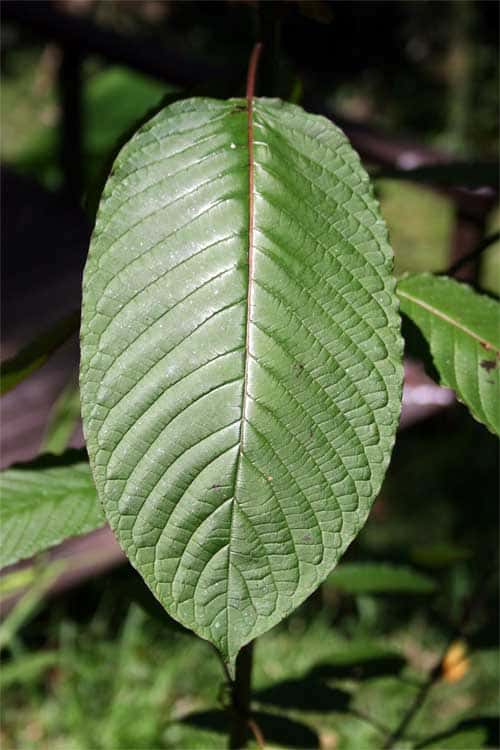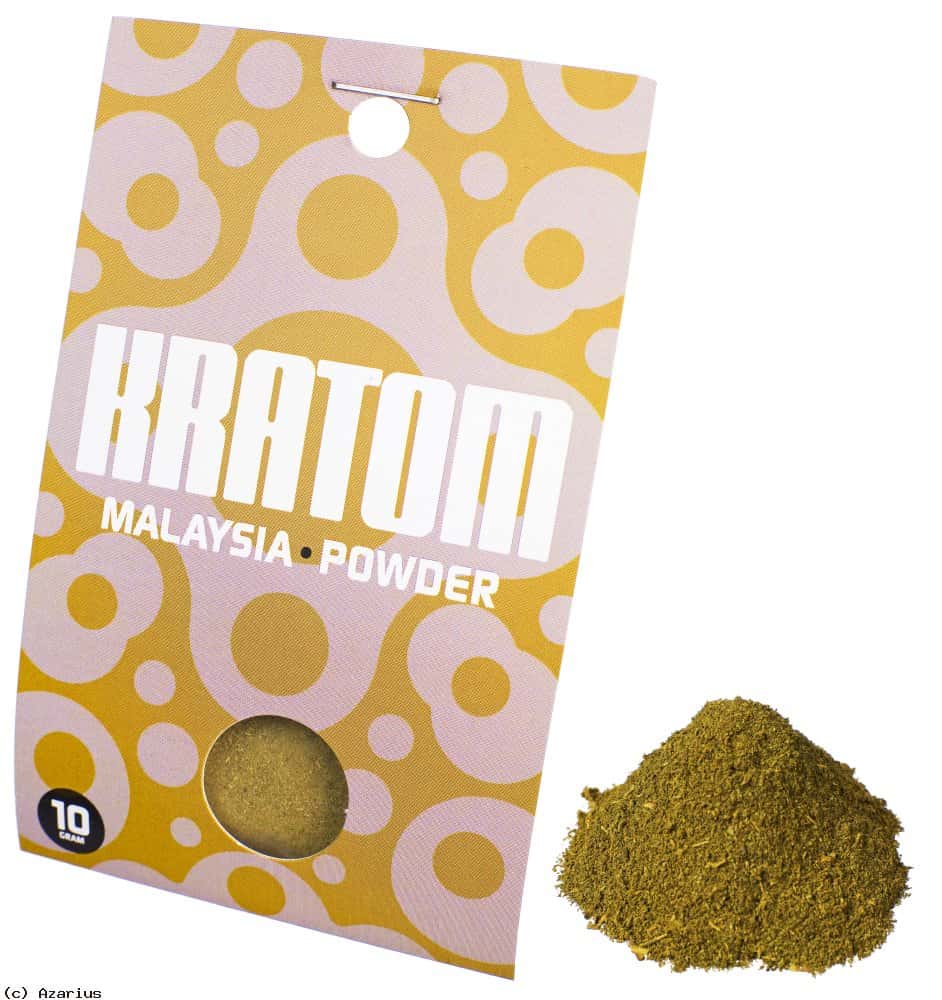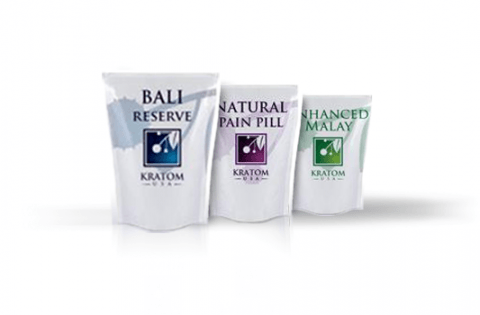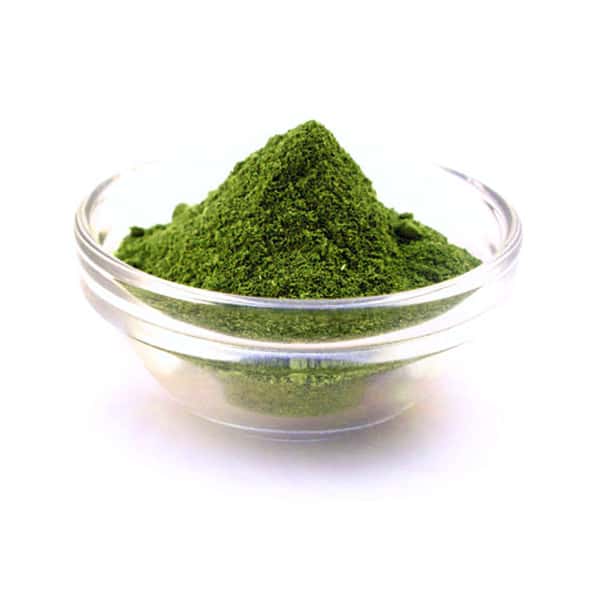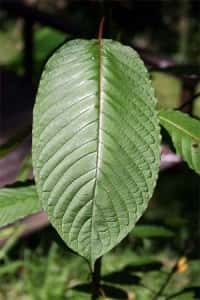 Kratom is a natural herb with an extensive range of benefits for mood, energy levels, stress and pain relief. Users who take Kratom capsules say that it improves their concentration, alertness, mental drive, sense of happiness, and susceptibility to anxiety and depression. This plant-based product has been used by millions of individuals worldwide and is a fixture among traditional cultures in South East Asia. It is considered safe when used as directed and is seen as a useful tool in treating opiate withdrawal. Recently, there has been much controversy regarding the legal status of Kratom with some politicians pushing a ban on this substance. In some countries, growing the Kratom plant is considered illegal and some of the alkaloids found in its leaves are now listed as controlled substances. Is Kratom legal in your country of residence and are there any special considerations you should keep in mind when purchasing or using it?
Kratom is a natural herb with an extensive range of benefits for mood, energy levels, stress and pain relief. Users who take Kratom capsules say that it improves their concentration, alertness, mental drive, sense of happiness, and susceptibility to anxiety and depression. This plant-based product has been used by millions of individuals worldwide and is a fixture among traditional cultures in South East Asia. It is considered safe when used as directed and is seen as a useful tool in treating opiate withdrawal. Recently, there has been much controversy regarding the legal status of Kratom with some politicians pushing a ban on this substance. In some countries, growing the Kratom plant is considered illegal and some of the alkaloids found in its leaves are now listed as controlled substances. Is Kratom legal in your country of residence and are there any special considerations you should keep in mind when purchasing or using it?
Topics
Is Kratom Legal?
United States: Kratom is not a controlled substance in the USA and is considered legal to grow, possess and use. You do not need a prescription to purchase it and it is not currently regulated by the FDA. Because it has not been approved for human consumption, it cannot be sold or labelled as a dietary supplement, but it can be sold as a raw active ingredient. Some states in the USA are considering legal regulations to control its sale; you should check with local authorities in your state of residence for up to date information on the legal status of Kratom products.
United Kingdom: You can purchase Kratom in the UK without a prescription and it is not currently scheduled or restricted. There are some local vendors of Kratom powder and capsules in the UK, but they tend to be a lot more expensive than North American based retailers.
Canada: Kratom is legal in Canada and can be purchased, sold and used without any limitations.
Australia: In Australia, the Mitragyna Speciosa tree as well as the Mitragynine alkaloid found in Kratom are listed on Schedule 9 of the SUSDP. This decision was made in October of the year 2003 at a meeting of the National Drugs and Poisons Schedule Committee. The Committee chose to make Kratom a controlled substance because they believed it had the potential for abuse, despite the fact that the Committee recognized that no cases of Mitragynine abuse had occurred in Australia.
Austria: At present, Kratom is legal and not controlled in the country of Austria.
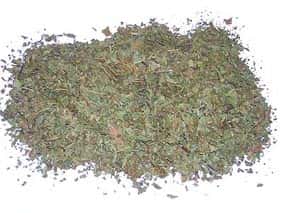 Belgium: Mitragyna Speciosa is not a controlled plant in Belgium and none of the alkaloids present in Kratom have been scheduled in this country. Kratom is legal and you do not need a prescription to purchase it.
Belgium: Mitragyna Speciosa is not a controlled plant in Belgium and none of the alkaloids present in Kratom have been scheduled in this country. Kratom is legal and you do not need a prescription to purchase it.
Brazil: Kratom use is legal in Brazil where the leaves of the plant as well as Kratom extracts are sold by local vendors.
Denmark: Up until 2009, Denmark allowed Kratom powders to be sold with no legal repercussions. However, its status has now changed and the herb is currently listed as a controlled substance.
Finland: According to some reports, Finland requires a prescription in order to purchase and use Kratom products. Importing the plant to Finland is also illegal and will result in your shipment being seized at the border.
Germany: The legal status of Kratom in Germany is somewhat unclear, in part due to the fact that laws have recently changed. Previously, German residents could import Kratom with little difficulty. However, the herb has now been classified as an unlicensed medicine and both domestic and international purchases are being controlled under Section 73 of the Medicines Act. Personal imports are likely to be inspected by border officials and denied entry. The law also outlines potential penalties including fines and jail time for Germans who unlawfully order it online.
Greece: Kratom use is not legislated in Greece and the chemical components of this plant are not considered to be controlled substances under Greek law.
Hungary: While Mitragyna Speciosa leaves have not been approved for human consumption, they are sold as incense and are available from head shops in Hungary.
Indonesia: Indonesia is one of the largest producers and exporters of Kratom in the world with many strains native to this Southeast Asian country. It is legal to grow and sell in this country and much of the North American supply of Kratom is source from Indonesia. There have been some unconfirmed reports about exports being blocked for shipment to the USA, but Indonesian strains continue to be sold and enjoyed around the world.
Ireland: You can buy Kratom locally in Ireland as it is legal and not regulated by Irish Statute Law or in the Misuse of Drugs Act.
Italy: There is little information about the legality of this herb in Italy; however, some Italian users tell us that it is legal and not controlled.
Malaysia: Kratom is illegal to sell in Malaysia unless you have a government license.
Myanmar: In Myanmar or Burma, this plant is illegal to grow and sell.
Netherlands: As you might expect, Kratom is legal in the Netherlands and is sold in smartshops as well as from online Dutch vendors. The Netherlands is one of the largest suppliers of this plant to Europe.
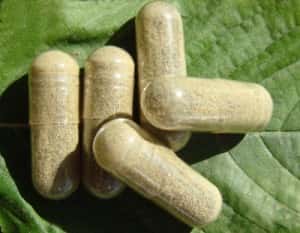 New Zealand: Under New Zealand law, you will need a prescription if you want to use Mitragyna Speciosa leaves. It is classified under the same Schedule 1 as prescription drugs in the Medicines Amendment Regulations Act of 2009. This law makes it illegal to sell Kratom to individuals without a prescription. However, certain interpretations have suggested that importing and possessing Kratom products is not technically illegal in New Zealand.
New Zealand: Under New Zealand law, you will need a prescription if you want to use Mitragyna Speciosa leaves. It is classified under the same Schedule 1 as prescription drugs in the Medicines Amendment Regulations Act of 2009. This law makes it illegal to sell Kratom to individuals without a prescription. However, certain interpretations have suggested that importing and possessing Kratom products is not technically illegal in New Zealand.
Romania: Kratom is a newly banned substance in Romania as of 2010.
Russia: There is some confusion about the legal status of Kratom use in Russia. Some sources say that it is still legal while others cite a change in the law some time in 2011.
Sweden: At present, Kratom is illegal to use in Sweden and it is not listed on any drug schedules. However, there are indications that this law may change in the future.
South Korea: According to some reports, Kratom is illegal in this country and is heavily regulated. Unlawful importation may be penalized with criminal punishments.
Thailand: Thailand is the native home of the Kratom plant and it has been used here for centuries as a component of traditional medicine practices. Mitragyna Speciosa leaves are also commonly prepared as a tea and consumed as a drink similar to coffee. Despite the widespread use of Kratom in Thailand, it is classified as a Level 5 Narcotic which makes it illegal to grow, possess, sell or purchase. There have been several inquiries that suggest this law was primarily established because Kratom was diverting funds from the lucrative opium trade in Thailand. While Mitragyna Speciosa continues to be used by traditional populations, much of the so-called “Thai Kratom” now sold online actually comes from Indonesia or other nearby countries.
